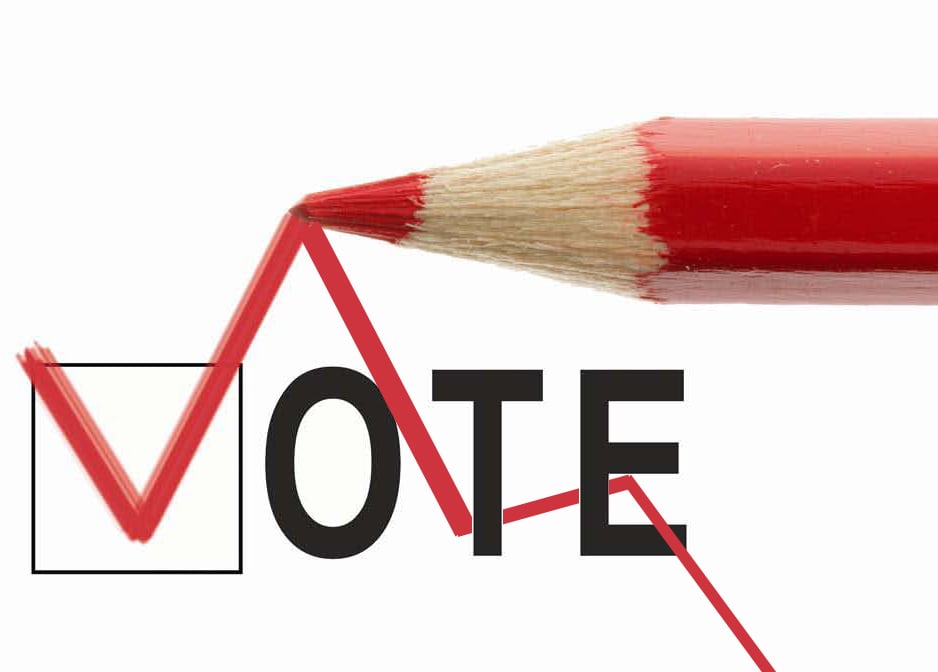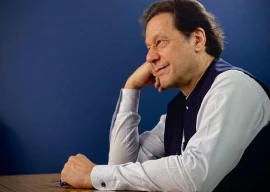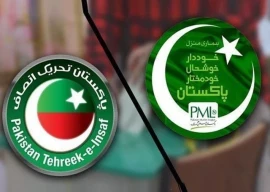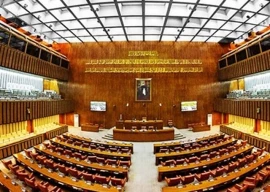
Democracy and economic growth don’t go hand in hand. At least not in Pakistan. Throughout the more than 60 years that Pakistan has been in existence, the best growth years that we have seen, have predominantly been in the times of military rule.
I am not saying this to advocate martial law; rather, I am saying this to urge our political leadership to pay heed to their short-comings and count their blessings that we are not yet a true democracy where the people’s vote really is a harbinger of change, like it is in developed countries around the world.
For example after the country slipped into its first era of military rule, GDB growth rate jumped from an average of 2.5% in the 1950s to 6.8% in the 1960s. This is widely acknowledged as an era of unprecedented growth for the Pakistani economy. You can make many arguments for the political repercussions of this era, but I am just talking numbers here.

Back to civilian rule
And once the country re-entered the democratic fold in 1971, which was a painful transition with tragic side-effects, the growth rate slumped to 4.8%. But democracy has always been short-lived in Pakistan. It wasn’t long before this fragile system once again got steam-rolled and Pakistan entered its most tumultuous era of all. Economic growth however in the 1980s once again went through the roof averaging 6.5%.
I do believe that the 1970s and the 1980s have been the two defining decades in Pakistan’s history. The 1970s ushered in an era of economic decay and mismanagement and bureaucratic stagnation the effects of which we have been unable to remove to this day.
In the same way the 1980s have forever left the dark shadow of war looming over Pakistan. It is no wonder that today we are mired in the clutches of both militancy and economic mismanagement.
In the 1990s, with the country once again under civilian rule, growth rate started to slide and by the time Pakistan entered its third and so far last military stint in 1999, it had fallen to historic lows, from an average of 6.5% in the 1980s to 2% in 2001. It was in Musharraf’s time that Pakistan saw some of its best growth years, with a high of 9% in 2004-5.
And one year into the present democratic setup, in 2008-9 the growth rate had slumped to 1.7%, the lowest in Pakistan’s history.
Dismal report card
The present government has had a dismal five years. The power crisis has gone from bad to worse. The circular debt has not been controlled.
The Debt Limitation Act has been breached every year and the debt to GDP ratio has surpassed all historic levels.
The rupee has set a record low of over 100 to the US dollar and Foreign Direct Investment has been on the decline. Sadly, the last year and subsequently the last budget prepared by this government was even more populist than ever. Subsidies have continued to rise and debt servicing has been eating a bigger and bigger slice of revenue every year.

Martial law is not the answer, but unless democratic governments give up their populist agendas, they won’t be able to give credence to the mantra, ‘Democracy is the best revenge’ either.
Published in The Express Tribune, February 18th, 2013.
Like Business on Facebook to stay informed and join in the conversation.
COMMENTS (43)
Comments are moderated and generally will be posted if they are on-topic and not abusive.
For more information, please see our Comments FAQ

1731051730-0/BeFunky-collage-(33)1731051730-0-165x106.webp)


1731049366-0/BeFunky-collage-(31)1731049366-0-165x106.webp)












Democracy allows greater space to civil society and civilian institutions, we witness a greater assertion of vocal elements of civil society, the media and the bars, the judiciary — revived under democracy by democratic means — and the federating units by virtue of the NFC Award, to expand their spheres and spaces scuttled during military dictatorships. We also see a presidency bowing to the parliamentary spirit of the 1973 Constitution, rather than remaining an instrument of the powers-that-be to scuttle the mandate of the people. Most vibrant and inclusive is the politics of coalition making at the Centre and the provinces. We see unprecedented accountability of the elected representatives by the media — often bordering on ridicule. On top of all this, a very proactive judiciary is not letting any omission of the executive go unpunished to a point where, on occasions, the poor executive looks traumatised and squeezed. So do you think a dictator allows this all.Never, it is the only democracy that gives freedom of expression and offers itself for the accountability. so please let the democracy prevail.
ISLAMABAD: This is with reference to Khurram Baig’s article “Is there an effective economic argument for democracy?” (February 17). My thoughts are that yes, there is. Political leaders depend on a group of individuals in society to gain and maintain power. These are their “selectorate” (Bruce Buenos de Mesquita: The Dictator’s Handbook). In a functioning democracy, these would consist of nearly all voters in the country, while in dictatorships, it is a narrower group. Pleasing all voters entails taking different actions than pleasing a few people. The former would mean building roads, funding education and health and ensuring law and order to make the lives of people safe. Corruption has lesser value and acceptance in such systems. Appeasing the few in a dictatorship requires a more focused license to plunder and is, therefore, more economical for leaders who get to keep more of the largesse for themselves. This is the context in which the question should be considered. The country has endured long periods of dictatorships with interrupted democracy. The current government seems likely to be the first in Pakistan’s history to complete its full term. Mismanagement is rife at a large-scale but at least it takes us one step towards a functioning democracy where the people can demand good governance. Let us not be naïve in anticipating that this will happen right away. Even after General Park Chung-hee ushered in regular elections, it took over two decades of repeated elections in South Korea before decent conditions started prevailing for the majority. The same has taken over five decades for India and over two decades for Malaysia. At least, we have begun our journey. Let us hold the course. Adnan Khan Published in The Express Tribune, February 20th, 2013.
There is not one case in human history of a full franchise democracy going from poverty and illiteracy to developed world status. So for Pakistan the question do we go for a prescription with a 0% success rate or try something else?
@Mirza: the author is not comparing Pakistán with other Countries.....only trying to compare diferent periods between civil and military rules....election in our country has become business and commercial ventures....an elected MPs enter the power of corridos due to votes from rural areas constituting 53 pct votes who considers these feudals and landlords as their economic supporters.... And non-implementation of LG election till today as per Constitution has exposed the farce face of these politicians who garthers on one platform when such shortcomings are exposed....even though they themselves are not follówing the constitution made by themselves.... Let us. Not blame democracy...it is performance that the author is talking about.... By the way...CHINA is an classic example which has proved that it is not democracy but system of accountability is put in place where all in govt by default has to.perform...... Since unfortunately for the past 60 years absence of accountability has brought our country TODAY on the verge of collapse.... It is no use arguing about democracy or dictator, but ask the poor people in the street and you will get the answer....are they satisfied today ? You may be happy because your stomach is full, but ask these poor people who has to feed his family on daily basis... Till yesterday, Army was being critisized on daily basis, and TODAY almost all political parties are demanding Army takeover of Baluchistan and Karachi.....soon it will be InshaAllah ...... It is not democracy, but people behind the mirror of democracy has ruined this country which has made people hate to hear word DEMOCRACY......
Fir economic growth, you have to have meaningful growth in 3 core sectors viz agriculture, mining and manufacturing. Pray tell me in whcih of theses sectors has Pakistan grown during martial law or ottherwise.
@Still: Instead of IMP repayment schedule, there should be actual prepayments chart as the writer has presented chart for GDP. . Army never repaid foreign debts rather IMP and other Donners enjoyed mounting debt burdens during military rules. As a result the political government following the military rules were and are facing the music of these debt burdens.
A Peshawary
The most recent Gallup poll (http://www.gallup.com/poll/160439/2012-pakistani-disapproval-leadership-soars.aspx) shows that 88% of Pakistani's have confidence in the military, while 23% have confidence in the government. Let's stop arguing about petty things like which dictator cooked what books and look at cold, hard numbers here. If democracy is simply a means of facilitating the will of the people, then lets have a referendum. People could either vote for the army to take over, or vote for the continuation of democracy. That way we could have a democratically elected dictatorship, and if not, we would know once and for all where the people stood on the issue of military rule.
Pakistan needs leaders, not politicians. The difference between the two is that a leader looks to the future while a politician looks towards the next elections. Imran Khan comes to mind as a true leader, yet he will never be able to grasp enough power to bring about the change we need. By the time he does, it will be too late, and Pakistan as we know it will be no more. I'm all for democratic evolution, but I sincerely doubt that we actually have time for it.
@Shah: They can't because that's the kind of thing politicians on the opposing side would love to bring out in the open the first chance they get.
Important points to note if one wants to know the real truth:
1) The periods of "democratic" rule in Pakistan have bee a farce since behind the facade of democracy, the army have always been the power wielders.
2) During outright army rules, Pakistan received billions of dollars of free foreign money and aid for "services" rendered.
3) The military rulers used their supreme powers to cook the book and show artificial economic growth and prosperity.
@Still: You saved my time and said it the way I wanted to-Agreed.Good take -up.
Economic data lags. If we take this into hand, the military caused bad economic growth and the civilian government good economic growth :D . Anyways, economic growth was good in military period because investors, consumers, and businesses had certainty, a vital ingredient for a successful economy. The current conflict, political turmoil, and poor infrastructure have greatly abridged certainty. Until we regain this certainty, Pakistan will not rise economically. Also, a democratic government can create certainty in economy if all government institutions respect each other and if democratic government wants economy to grow!
This is misleading and extremely narrow minded. While most dictatorial countries have been backward in every sense of the world, the richest countries of the world have been democracies. Except tiny kingdoms and sheikhdoms there are no countries that are not only rich but supporting the poor and sick people of whole world. Bill Gates and Warren Buffets are not the result of dictatorships. In addition Pakistan has never been a true democracy but always under the guns. The democracies that are not under the guns are all making progress, recent examples being Turkey, Brazil, Chile, Malaysia, Indonesia, South Korea, to name a few. Did the writer not see the contrast between the per capita income of starving North and thriving South Korea? From Turkey to Latin America the country only made real progress when the elected govts took full control of their armed forces. China did not make much progress as long as it was a closed dictatorship.
@p r sharma:
It does! Stop embarrassing yourself.
To be honest, I have seen better economy in Musharraf's dictatorship then in Zardari's Democracy! Same goes for Ayub Khan and Bhutto, So there some thing wrong with this article, Isn't it?
the biggest reason of this is welfare populism of elected governments. we have seen ppp's benazir income support program, muslim league N's sasti roti scheme etc. while military dictators are not in need of this type of cheap popularity.
after going throughout comments army should also throw their hat in the election as a party ( or if voters have the option in all constituencies to stamp the army as their choice) someone( groups of generals / officers from the army ) can moot this idea to the election commissioner !! A new experiment of army rule with the mandate of people. Pilot project in a province first at small scale like KP or Balochistan will be ideal to experiment . Does it sound too stupid ?
The inability or incapability of our political institutions is to blame here, yet that in no way justifies the rationale of having military dictators in place. Weakness in institutions is the main reason for the failures here, and lack of democracy is the reason behind it.
From a group of people living in a particular geography, we are on our way to become towards becoming a civilization - and only a strong civilization can deliver economic liberalization.
Is it possible that inflated growth rates shown by Musharraf led to correction in PPP's reign? A separate issue is the dictators got PAkistan into wars which had many downstream consequences. At the front-end though the economy benefited greatly. So the questions is, are Pakistani people willing to go with a dictator who will sell the army for a price t o US and Saudis?
is Democracy the best solution for this country? democracy has benefited our politicians and their families the most. look around most of the political parties are owned by families or one man show, its political monarchy here in pakistan in the name of democracy, it has never been meant for the good of common people. It gives our politicians to get a good price. What would motivate a rich politician to spend millions to get elected is it really to serve poor people??
I would agree with that. Dictators built this country only to get that looted at the hands of our beloved 'democratic leaders'. Look at the era of Ayub Khan, look at Musharraf's and you need no further mention of references. Its ridiculous to say that democracy has never been allowed to work, going with the same line I can say the dictatorship hasn't been allowed to stay for long. Otherwise this country would have been more prosperous. Compare any dictator's five years with any democrat's five years and you won't abuse me.
Well written. It's sad that even military governments, dictatorships, have displayed better governance than the civilian politicians. That says a lot about these politicans that claim to work for the welfare of the people.
America's largesse for military dictators - and its aversion to democracy in Pakistan - explains at least 50% of the 'better' economic report card our khakis present. On the other hand, Bhutto's nationalization drive - and other such follies - explain the dismal economic performance under civilian rulers. The ruling elite as a whole is rotten.
The writer is not discussing dictatorial and democracy, but is requesting the political leaders to perform and govern for the welfare of the poor masses and not for power.....
Economic growth does not have anything to do with democracy.You need good governance,good policies and investor confidence These 5 years have been disaster.They have pushed the country back 10 years
@RAW is WAR: so why cant the politicians do that...????? if they can make SWISS balances or kill a NAB officier, i think showing false statistics is not tht difficult...or....!!1
@Still:
rather accepting the fact you like any other politician are just giving a wage statement. We have feudal democracy and with that you dont get higher GDP...!!!!!!
This is most senseless piece of writing ever published in tribune. sinple truth I s these periods of growth to ecnmic cycles all over the world and artificial growth achieved by dictators in service sectors
Musharraf government has been the best in Pakistan history.
..and still people keep voting for PPP.
Pakistan grows when patriots are in charge.
Sadly but the truth is that our politicians are not competent to run the country since they are corrupt to the core!
Asian growth model is quite different from the widely accepted Western one. Japan, Malaysia, Indonesia, Taiwan, China, South Korea etc made tremendous economic growth under military dictatorships or tightly controlled political systems (with one exception being India but it is far behind China despite many similiarities and same potential). When some of the mentioned countries achieved a certain level of prosperity, their societies moved away from controlled political systems embracing democracy. Asian growth model can be summed up as......strong economic growth, wealth creation, prosperity, mass education, industrialiazation under dictatorships or controlled political systems.........after achieveing prosperty and socio-political advancement, these countries moved towards democracy.
We should keep in mind that this is the first time a political government is completing its constitutional term. Let the democracy have its course and then only can we reap its benefits.
The ordinary man of Pakistan just wants some bread and water on the table and that need of his has been served by the military "dictators" by far. Ask most ordinary people today and they'll tell you they'd much rather have the army in power.
@adeel.
Bro...could not have put it a better way! 100% agree
Pakistan has been shocking itself since its inception with all possible forms of Governments. If Pakistan is to be at peace with itself, its Salvation lies in a Presidential form of Government, where the candidate for the highest office stands for a direct election. Pakistan’s Dictators have not been good at being dictators, and the democrats have not been good at being democrats. This ‘Westminster’ version of “democracy”, has not delivered in the past, present, and will never be able to deliver in the future. This 'Democracy’, which sends to the assemblies candidates winning from a few thousand votes, of dubious authenticity, from some captive constituencies, will always create the collations of the Incompetent & Corrupt to indirectly ‘elect’ persons of the caliber of Asif Ali Zardari and Raja Pervaiz Ashraf to the highest offices. This is a sick joke, and stretching it for five years is just unbearable, in every sense of the word. This system needs to be buried at its rightful place-------“”Ghari Khuda Baksh””.
Yes. Oh yes. Martial law has always come with unprecedented sell-out to the US. From SEATO and CENTO during Ayub to Afghan Jihad during Zia to WOT during Mushi. Democratic governments don't get American support like that. The Army also does not have to take everyone along in every decision, hence quick decisions and investor confidence. On the other hand, they have always tried to engineer in a hung parliament during the brief periods of democracy we have had, just to keep the politicians in check.
It is possible for democratic governments to achieve sustained, broad-based growth. The argument on whether democracy or authoritarianism is better for prosperity has been a major one in political economy and is far from concluded. I would have liked to see the author make a case for policies instead of regime. It's true that Pakistan has seen spurts of growth in times of military rule, but it has also seen the most progress in social indicators like health, education, literacy, and spread of basic services under democratic governments. Narrowly-founded growth under military regimes is not necessarily preferable to these outcomes. That said, while democracy must endure, better and more efficient economic management must prevail. We need a broad accord on our economic priorities between the nation's political forces so that uncertainty and policy fluctuation can be removed. Something like a "charter of the economy" between politicians will be a good start.
dictators also have power to show wrong statistics- Parvez Musharraf comes to mind immediately.
Sadly this is not democracy by the way... There is no accountability whatsoever, this is not democracy, this is fraud, worse than monarchy or martial law
Really factually historically and politically incorrect analysis. ET should be careful in giving space to people with half baked understanding of issues. To start with democracy in this country has only survived in short spurts of time while dictatorships have always enjoyed at least a decade so its obvious that under military rule economic policies enjoyed continuity. Secondly military rules in Pakistan were always a result of or otherwise some important regional/ international development resulting in pouring in a billions of dollars. For god sake please get the basics right before making a front page claim about democracy and economy.